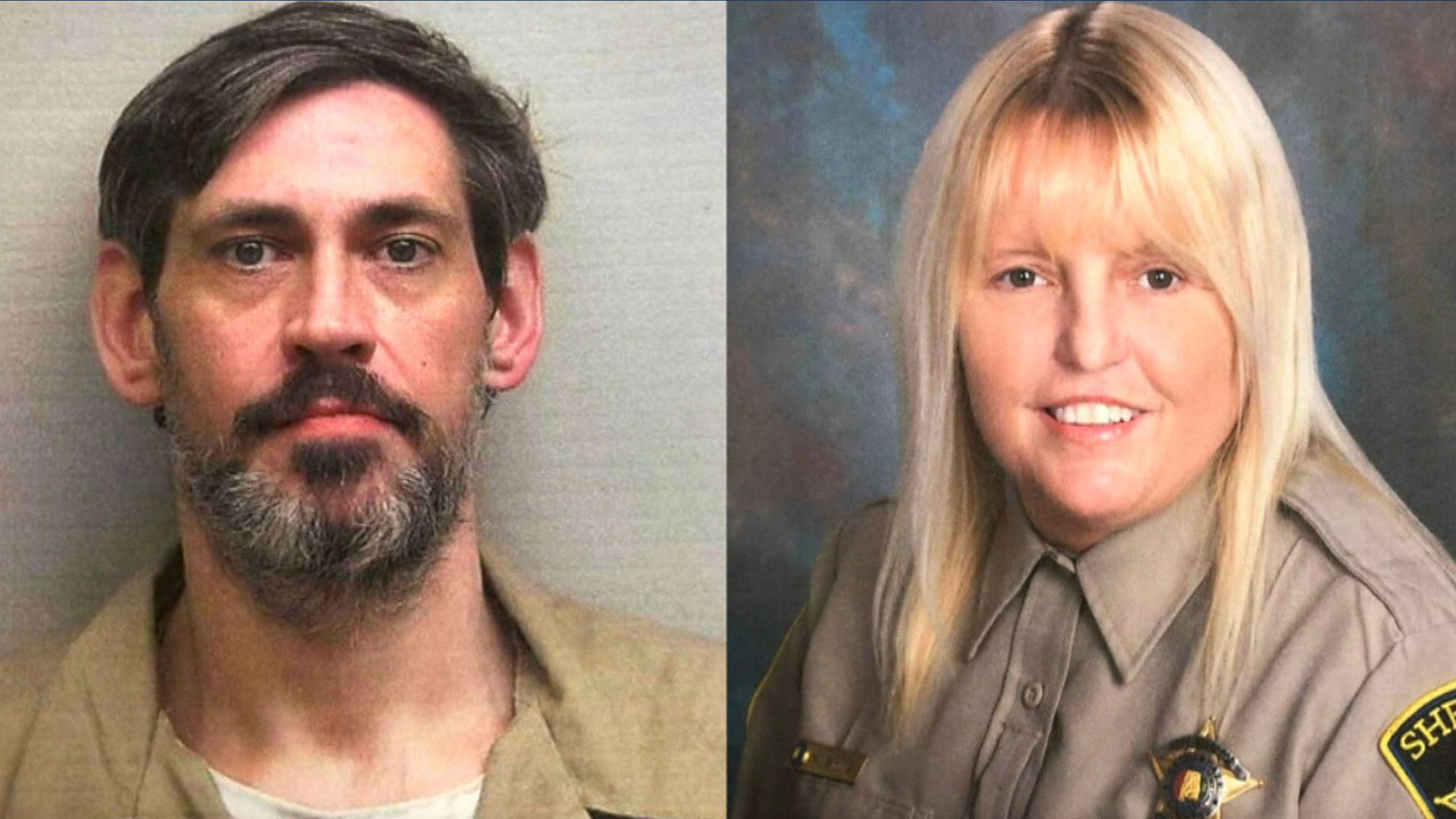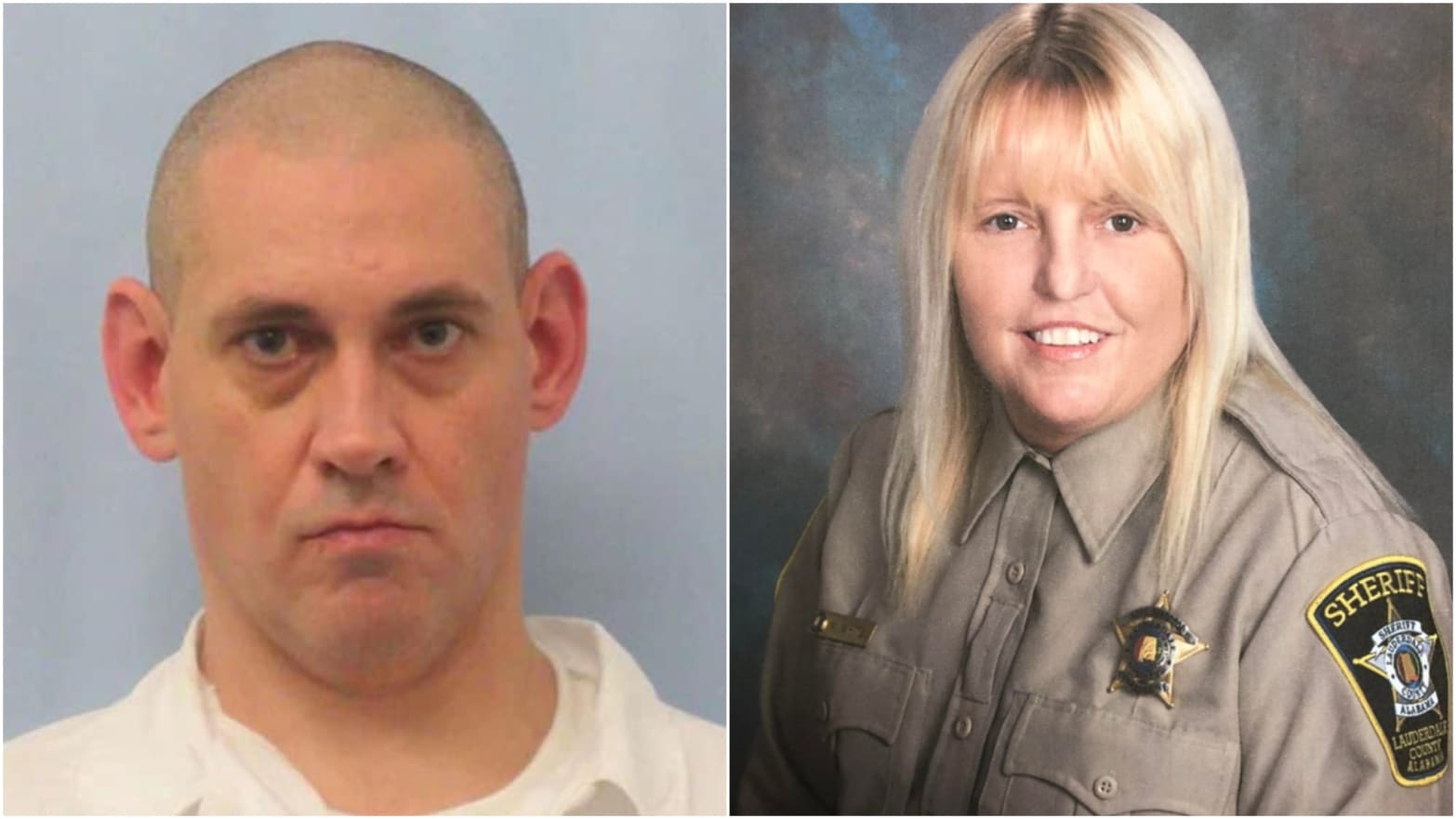
Female prison workers often become prime targets for inmates seeking escape due to their perceived vulnerabilities and potential access to sensitive areas. The case of Vicky Whiteserves as a stark reminder of this dangerous reality.
Explore the unsettling trend behind inmates' tactics and the heightened risks faced by women working in correctional facilities. Learn about the strategies used by inmates, the challenges female staff encounter, and the urgent need for enhanced safety measures to protect those working within the confines of prison walls.
Delve deeper into the complexities of this issue to understand the threats faced by female prison workers and the urgent measures required to ensure their safety in such challenging environments.
Complexities Of Prison Workers' Involvement In Inmate Escapes

According to Kevin M. Gilmartin, a law enforcement behavioral scientist, Vicky White's involvement in the 2022 escape of Casey White, a convicted felon, sheds light on a perplexing trend among prison workers. Vicky, a respected corrections officer with a distinguished 17-year career, aided Casey's escape shortly before her retirement.
Despite her stellar reputation, Vicky's decision to assist an inmate on the run raised questions and shock among her colleagues and law enforcement. Casey, charged with multiple crimes including murder, was on the run for 11 days before being captured in Indiana, while Vicky tragically died from a self-inflicted gunshot wound following a police chase.
Her unexpected involvement has left authorities and colleagues bewildered, considering her esteemed standing within the correctional facility. The puzzling circumstances of Vicky White's actions underscore a larger question, why do some prison workers become embroiled in such alarming situations, shedding light on a broader phenomenon among correctional staff?
Getting Too Close In Close Quarters
Prison breaks have been made easier by a prison tailor, a dog trainerand a psychologist, among others, In the last 25 years. They have a common denominator, An apparent “romantic” relationship between male inmate (or inmates) and a female worker.
According to a 2023 Department of Justice report, approximately two-thirds of incidents involving sexual misconduct between prison staff and inmates were initiated by female staff members.
Dr. Gilmartin, a clinical psychologist and renowned author in law enforcement psychology, highlights a significant difference between police officers' brief interactions with offenders and corrections officers' prolonged, emotionally charged engagements in intimate settings with inmates.
He suggests that corrections officers, who often prioritize their job identity over other aspects of their lives, may become susceptible to manipulation due to their isolated social connections and mental vulnerability stemming from high-stress work environments and lacking personal hobbies.
Gilmartin's research indicates that despite their impeccable professional records, corrections officers are at risk of being emotionally manipulated by inmates. Gary Cornelius, a retired first lieutenant with expertise in training correction officers, emphasizes the susceptibility of long-serving and senior prison employees to burnout and manipulation.
Stressors such as inadequate compensation, extensive work hours, and poor working conditions contribute to their vulnerability. Cornelius warns that disclosing personal information, like marital status, or engaging in negative discussions about fellow officers with inmates, could signal a potential slide toward compromising situations.
How Inmate-Officer Bonds Turn Dangerous
Cornelius's book, "The Art of the Con, Avoiding Officer Manipulation," focuses on how officers can be manipulated into engaging in illicit behaviors, often beginning with inmates observing which officers are willing to perform small favors for them, as explained to A&E True Crime.
Prior to aiding Casey White in his escape, Vicky White had reportedly granted him special privileges, including extra food, a practice highlighted by Cornelius as part of a potential manipulation tactic.
Although prison regulations on treats and privileges might seem strict to outsiders, Dr. Gilmartin emphasizes the necessity for officials to scrutinize all actions of prison workers, assuming the worst-case scenario, as sometimes it proves to be true.
He cites the case ofJoyce Mitchell, a civilian prison employee who assisted two convicted murderers' escape from a New York prison in 2015. Mitchell gained favor with guards by bringing in baked goods, resulting in preferential treatment and special meals for the escaped men.
Guards accommodated her requests, such as placing the men in adjacent cells and providing one prisoner with frozen hamburger meat without metal detector screening, according to CNN reports.
Additionally, Cornelius outlines several "red flags" for inappropriate staff-inmate involvement, including flirtatious exchanges, excessive time spent by an employee with a particular inmate, and staff assistance in an inmate's financial, legal, or personal matters.
Prisoners Have Nothing But Time
According to Dr. Gilmartin, individuals planning an escape from prison typically tend to be those serving longer sentences. He notes that someone with a shorter sentence, having almost completed their term, is less likely to attempt an escape. However, for those facing a lifetime behind bars, the incentive to break out becomes more compelling as they perceive they have nothing to lose.
Corroborating this view, Cornelius emphasizes that inmates serving lengthy sentences possess ample time—365 days a year, 24 hours a day—to meticulously plan their escape strategies.
This extended duration allows manipulative offenders to slowly cultivate trust over time before soliciting help for an escape. Allegedly, Vicky White and Casey White shared a "special relationship" for two years prior to the prison break, indicating a period during which trust and rapport were established before the escape plan was set in motion.
How Predators Exploit Isolation For Gain
According to Cornelius, inmates often take advantage of the prolonged time they have to identify and target individuals who are lonely for potential romantic connections. He emphasizes that everyone craves emotional feedback, highlighting that people are primarily motivated by unmet needs, as noted by Dr. Gilmartin.
This notion was evident in Toby Dorr's case, a dog trainer in an unhappy marriage, who assisted convicted murderer John Manard in escaping from a Kansas correctional facility in 2006.
Dorr mentioned that Manard's attention and care for her emotional state were like nourishment to a withering plant, describing the 12 days they spent on the run as "wonder-filled," yet acknowledging that her vulnerability and desperation played a significant role in her actions.
Dr. Gilmartin adds that acknowledging a prisoner's humanity can be a positive trait in a mentally healthy employee, but it becomes problematic for an emotionally fragile individual.
He explains that individuals lacking a supportive social network at home might form intense connections within the prison environment due to the absence of other relationships. This was a surprising revelation for Dr. Gilmartin when he discovered that a female officer he knew had been in frequent contact with an offender's mother before the escape.
Interestingly, Casey White claimed that he and Vicky White were genuinely in love, a sentiment echoed in court. As part of a plea agreement, Casey White received a life sentence in 2023 and was prohibited from any direct or indirect contact with Vicky White's family.
‘I Loved Vicky’ - Casey White Sentenced To Life In Prison
Casey White received his sentence from Lauderdale County Circuit Judge Benjamin Graves after agreeing to a plea deal for his escape from the Lauderdale County Detention Center in April 2022. White expressed feeling like the most despised individual globally during his court appearance, stating his affection for Vicky and his refusal to tarnish her reputation in the courtroom.
He recounted Vicky's actions, indicating that she aided his escape because she believed in doing what was morally right. White reflected on the significance of Vicky's kindness, highlighting that she was the first person to show him affection and offer a hug in six years.
"I extend my apologies to her family because she mentioned that her sole regret was leaving her family," White remarked before resuming his place.
Relatives of Vicky White were present in the courtroom during the sentencing.
Earlier, Chris Connolly, the District Attorney of Lauderdale County, conveyed, "Speaking on behalf of the state and Vicky White's family, I want to emphasize the immense impact this crime has had on the family. Vicky's mother was too overwhelmed to speak."
Connolly further stated that if Casey were to benefit financially from any book or movie deals, he should not be entitled to retain those profits. Defense attorney Mark McDaniel described the case as unique and unprecedented in his legal experience.
"In one's career, there are moments where addressing an issue becomes challenging," McDaniel conveyed to the court. "This case is unlike any I've encountered before."
McDaniel emphasized that Casey White wasn't solely accountable for the escape.
"No matter how good or kind Vicky may have been, she possessed the key to facilitate [Casey's] escape, not him," McDaniel argued. "We all rely on something similar every day... something akin to 'amazing grace.'"
Nevertheless, the sentencing hearing for Casey White does not mark the conclusion of his legal proceedings. He is scheduled for a capital murder trial on August 14, relating to the 2015 stabbing death of Connie Ridgeway in Rogersville.
District Attorney Connolly mentioned to News 19 that as of May 5, there haven't been any discussions about a plea deal in that particular case. He also indicated that the jury pool for the upcoming trial is anticipated to be similar in size, likely consisting of 500 to 600 individuals, akin to the pool planned for the felony murder case.
Additionally, News 19's Dallas Parker is providing real-time updates from within the courtroom via live tweets, allowing followers to stay informed about the proceedings.
